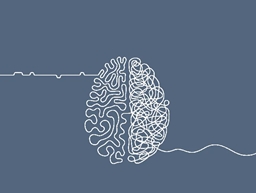|
Mental Health
Mental HealthMental health refers to your emotional, psychological, and social well-being. It encompasses various aspects of your life, including your thoughts, feelings, behavior, and the ability to cope with stress and manage relationships. Good mental health is essential for overall well-being and quality of life. Mental health encompasses a wide range of fields and disciplines that address various aspects of psychological well-being and mental health care. Here are some of the different fields within mental health: 1.) PSYCHIATRY: - Medical Specialty: Psychiatry is a branch of medicine. Psychiatrists are medical doctors (MDs or DOs) who specialize in the diagnosis, treatment, and prevention of mental illnesses and emotional disorders. - Medication Management: Psychiatrists can prescribe medications to treat mental health conditions and often use a medical model to understand and address mental health issues. - Therapeutic Approaches: In addition to medication management, some psychiatrists also provide psychotherapy, but their primary focus is on the medical and biological aspects of mental health. - Training: Requires medical school, followed by psychiatric residency training. 2.) PSYCHOLOGY: - Academic Discipline and Profession: Psychology is both a scientific discipline and a profession. Psychologists study behavior, cognition, and emotion and apply their knowledge to understand and treat mental health issues. - Assessment and Therapy: Clinical psychologists are trained to assess and diagnose mental health conditions and provide therapy or counseling services. - Research: Psychologists often conduct research to contribute to our understanding of human behavior and mental processes. - Training: Requires a doctoral degree (Ph.D. or Psy.D.) in psychology, followed by licensure. 3.) COUNSELING: - Profession: Counseling is a profession focused on helping individuals address various life challenges, including mental health issues, but it is often less specialized than psychology or psychiatry. - Scope: Counselors provide guidance and support to individuals dealing with personal and emotional issues, relationship problems, and life transitions. - Settings: They may work in various settings, including schools, colleges, community centers, and private practices. - Training: Requires at least a master's degree in counseling, counseling psychology, or a related field, followed by licensure. 4.) THERAPY (PSYCHOTHERAPY): - Treatment Approach: Therapy, or psychotherapy, is a treatment approach that involves talking with a trained professional (therapist or counselor) to address emotional, psychological, or behavioral issues. - Various Modalities: There are various types of therapy (e.g., cognitive-behavioral therapy, psychodynamic therapy, family therapy) designed to address specific concerns or conditions. - Providers: Therapists can include psychologists, clinical social workers, marriage and family therapists, and counselors. - Training: Training requirements vary depending on the specific profession but generally involve graduate-level education and licensure. In summary, psychiatrists are medical doctors who primarily focus on the medical and pharmacological aspects of mental health. Psychologists are trained in psychology and provide assessment and therapy services. Counselors offer guidance and support for various life challenges, including mental health issues. Therapy refers to the process of addressing emotional and psychological issues through structured conversations with trained professionals, and therapists come from various educational backgrounds. Each field plays a unique role in the overall mental health care system, and individuals seeking help should consider their specific needs when choosing a provider. |





